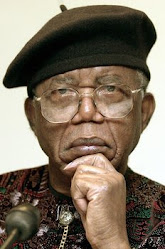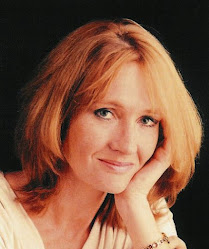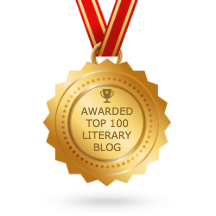For decades, African men and women have shone like beacons locally and internationally. I write this essay to pick two Africans I admire, not because these are the greatest, or the most knowledgeable or courageous, but because their achievements have impressed me. The two Africans I admire immensely are South Africa’s Nelson Mandela and Nigeria’s Dora Akunyili. Their hard work, simplicity and down to earth manner is endearing to me. Their contributions, even if they do not directly affect you, have made them objects of national pride. The numerous awards and accolades conferred on them are not what have made them great- those are merely tokens of appreciation from indebted and approving kinsmen, it’s their struggle to rescue their country men despite all odds.
I shall begin with Nelson Mandela. Nelson Rolihlahla Mandela was born in Transkei, South Africa on July 18, 1918. He was educated at University College of Fort Hare and the University of Witwatersrand and qualified in law in 1942. He joined the African National Congress in 1944 and was engaged in resistance against the ruling National Party's apartheid policies after 1948. He went on trial for treason in 1956-1961 and was acquitted in 1961. After the banning of the ANC in 1960, Nelson Mandela argued for the setting up of a military wing within the ANC. In June 1961, the ANC executive considered his proposal on the use of violent tactics and agreed that those members who wished to involve themselves in Mandela's campaign would not be stopped from doing so by the ANC. This led to the formation of Umkhonto we Sizwe. Mandela was arrested in 1962 and sentenced to five years' imprisonment with hard labour. In 1963, when many fellow leaders of the ANC and the Umkhonto we Sizwe were arrested, Mandela was brought to stand trial with them for plotting to overthrow the government by violence. His statement from the dock received considerable international publicity. On June 12, 1964, eight of the accused, including Mandela, were sentenced to life imprisonment.
From the winter of 1964 to 1982, he was incarcerated at Robben Island Prison, off Cape Town. Confined to a small cell with the floor as his bed, a bucket for a toilet, he was forced to do hard labour in a quarry. He was allowed one visitor a year for 30 minutes. He could write and receive one letter every six months. But Robben Island became the crucible, which transformed him. Through his intelligence, charm and dignified defiance, Mandela eventually bent even the most brutal prison officials to his will, assumed leadership over his jailed comrades and became the master of his own prison.
During his years in prison, Nelson Mandela's reputation grew steadily. He was widely accepted as the most significant black leader in South Africa and became a potent symbol of resistance as the anti-apartheid movement gathered strength. He consistently refused to compromise his political position to obtain his freedom. He emerged from prison; a mature leader who would fight and win the great political battles that would create a new democratic South Africa. Thereafter, he was incarcerated at Pollsmoor Prison. After his release on February 11, 1990, he plunged himself wholeheartedly into his life's work, striving to attain the goals he and others had set out almost four decades earlier. His switch to a policy of reconciliation and negotiation helped lead the transition to multi-racial democracy in South Africa. Since the end of
apartheid, he has been widely praised, even among white South Africans and former opponents. In 1991, at the first national conference of the ANC held inside South Africa after the organization had been banned in 1960, Mandela was elected President of the ANC while his lifelong friend and colleague, Oliver Tambo, became the organisation's National Chairperson.
Mandela has received over a
hundred awards over four decades, most notably the
Nobel Peace Prize in 1993. He was inaugurated as the first democratically elected State President of South Africa on 10 May 1994 and stepped down from office in June 1999 after which he retired from public life. He is currently a celebrated elder
statesman who continues to voice his opinion on topical issues. In South Africa he is often known as Madiba, an honorary title adopted by elders of Mandela's clan. The title has come to be synonymous with Nelson Mandela. Mandela, on his 89th birthday launched an initiative called
Global Elders, a group of 12 wise men and women, who will address global problems by offering expertise and guidance. He currently resides in his birth place - Qunu, Transkei

Mrs. Dora Akunyili is the other African I admire. She was born on 14th July 1954. From her primary school education through to her tertiary education, Mrs. Dora showed remarkable brilliance earning scholarships in her secondary and tertiary schools. She got her B. Pharm (Hons.) in the year 1978 and Ph.D in 1985, both at the University of Nigeria Nsukka (UNN); she won the vice chancellor postgraduate and research leadership price in faculty of Pharmaceutical Sciences in the 1984/85 and 1985/86 academic sessions. She served in six Senate Committees and various offices of Pharmaceutical sciences Committees of the University from 1986 – 1992. She received the family Health International USA Congress Award for the 10th International Conference on AIDS Yokohama, Japan (1994). She was appointed zonal secretary of Petroleum Trust Fund (PTF) and coordinatiedall projects in the five south eastern states of Nigeria from 1996 – 2000. She was a post Doctorate fellow of the University of London, and a fellow of the West African postgraduate college of Pharmacy. She was also one of the six Nigerian ladies honored at The Hague by the International Pharmaceutical Federation in 1998.
She took over as Director General of the National Agency for Food and Drug Administration (NAFDAC) in 2001. Before she took charge, her countrymen faithfully swallowed pills of white chalk marketed as popular painkillers; daily they quenched their thirsts with copious amounts of dirty, germ-full water sold in satchets and nylon bags; they imported substandard products that even less affluent neighbouring countries wouldn’t let near their borders; her countrymen wolfed down loaves of bread baked with Potassium Bromate, to satisfy their hunger; they purchased expired market goods whose expiry dates had been cunningly postdated to increase their shelf life or sometimes ignorantly purchased them with their expiry dates written clearly. An astonishing 80% of all the medications sold in Nigeria were deficient in one way or another. According to statistics in 1990, more than one hundred Nigerian kids died from a painkiller that had been made with toxic ethylene glycol instead of propylene glycol. In 2003, phony Adrenaline led to the deaths of three children undergoing surgery in Enugu. Dora’s own sister died in 1980, as a victim of fake insulin.
However, Mrs. Dora revamped the food and drug industry, with an iron fist and remarkably strong will. Soon after she took charge, she restricted Pharmaceutical imports to just two airports, and seaports, and had them manned by trustworthy NAFDAC officials. Her agency made a list of 19 Indian and Chinese companies that have been indicted for manufacturing fake drugs and banned their products. She placed her own analysts in India and China to re-certify any drugs manufactured in those countries before they could be shipped to Nigeria. Under her leadership, NAFDAC conducted nationwide raids on nearly 800 drug distribution outlets, carrying out 90 “destruction exercises” on counterfeit and substandard medicine. Because of her candour, several attempts on her life have been made. NAFDAC’s offices have been firebombed and its staff attacked by gunmen. She says, “Drug counterfeiting is the greatest evil of our time. Malaria can be prevented, HIV/AIDS can be avoided and armed robbery may kill a few at a time, but fake drugs kill en masse”
Through various media she warns of the ills of fake drugs and the need for the common man to report any such criminal activity. She has boosted the economy by re-energizing the local drug making industries, and encouraging genuine importers and foreign investors. She has gained recognition for her dedication to her office. She has received over three hundred and ninety awards, among which are Person of the Year 2005 Award by Silver bird Communications Ltd, Nigeria (5th January 2006); Honourary Georgia Citizen by the State of Georgia, USA (24th June 2006); Honourary Degree of Doctor of Law by University of Bristol, London (18th July 2006); Transparency International Integrity award in South Korea (25th May 2003); She was also honoured as one of the 18 heroes of Time Magazine, New York (2nd November 2006). She is a Fellow of Pharmaceutical Society of Nigeria and belongs to other learned societies, a few of which are New York Academy of Science, International Union of Pharmacology and International Pharmaceutical Federation. She’s also an Officer of the Federal Republic of Nigeria (OFR).
In a nation that has male dominance entrenched deeply in its various cultures, she has proved that women can be trusted with huge official responsibilities. She has made her country women extremely proud.
At a time when African are being badmouthed internationally, these two Africans give me reason to hold my head up anywhere “Africa” is mentioned. Yes, Nelson Mandela and Dora Akunyili have proven that Africa is not filled with drug dealers, swindlers and shady politicians. We have principled, responsible and hardworking nationals who will always stand for what is right, no matter the personal cost.
References:
http://www.pbs.org/wgbh/pages/frontline/shows/mandela/prison ;
http://www. Time.com/time/magazine/article.html; Lifesaver Hero: Dora N. Akunyili by Samson from Abuja,
http://www.myhero.com/myhero/hero; The Roar, volume 7, No. 1 2006/2007 edition, October 2006 pg 72.

























